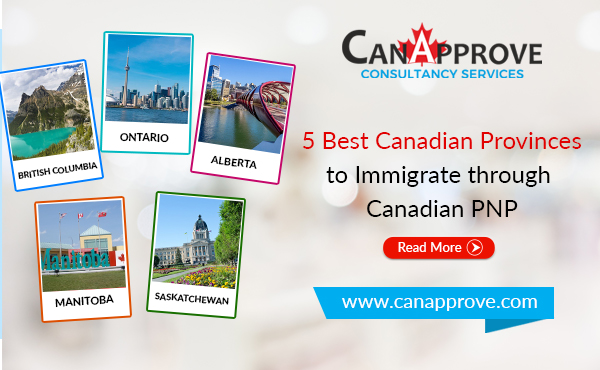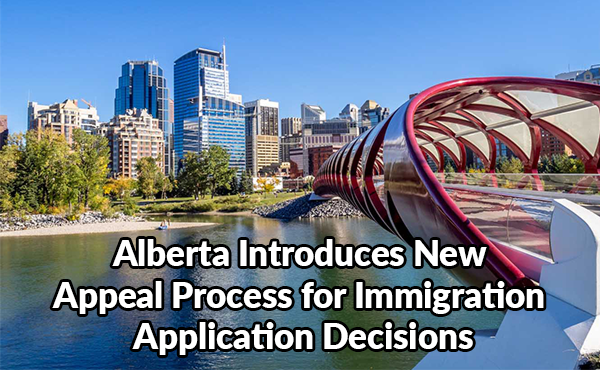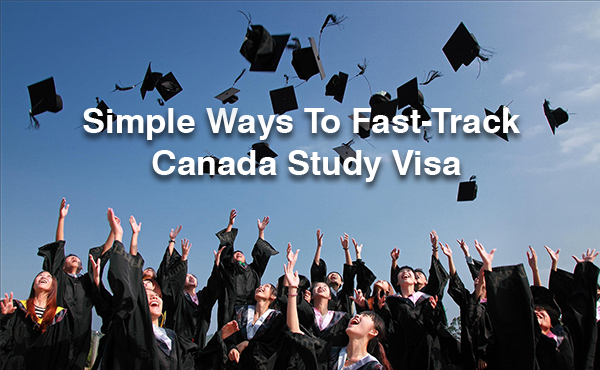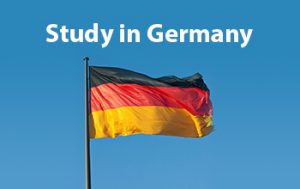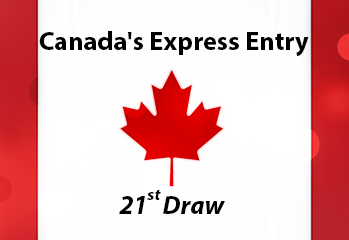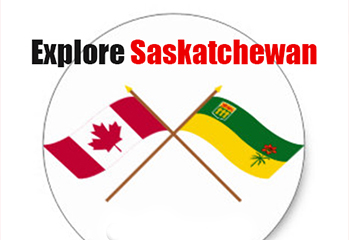Canadian PNP or Provincial Nominee Programs is one of the best ways to immigrate to Canada. Canadian PNP is an immigration program through which the provinces of Canada nominate individuals for permanent residence. The Canadian PNPs serve two major purposes–meeting the labor market needs and filling the population gaps of the provinces.
As the needs and demands of each province are different, the selection criteria also vary accordingly. Besides, each Canadian PNP has exclusive streams, categories, and sub-categories to serve their particular needs. But in common, all provinces need skilled workers, graduated students willing to live in the province, entrepreneurs, and investors.
Canada government is planning to increase Canadian PNP allocations under its Multi-Year Immigration Plan (2018 to 2020). While the allocation target for 2017 was 51000, this year, the target is 55000. The allocations for 2019 is 61000 and for 2020, the allocation is 67,800.
Here are five of the best Canadian PNP that you can opt in order to migrate to Canada.
British Columbia Provincial Nominee Program(BC PNP):
BC PNP is a highly popular Canadian PNPs through which, the province of British Columbia invites skilled foreign workers and experienced entrepreneurs to settle in the province. BC PNP has three major pathways:
Skills immigration:
For skilled and semi-skilled workers in high-demand occupations of British Columbia
Express Entry BC:
A pathway is aligned to the Express Entry system of the federal government for foreign skilled workers.
Entrepreneur immigration:
This pathway attracts high net worth business people to run a business in the province.
BC PNP Tech Pilot: The technology sector of British Columbia is a major driver of the province’s economic growth. BC PNP aims to attract talents that can sustain the growth of the technology sector of the province.
Ontario Immigrant Nominee Program (OINP):
Ontario Immigrant Nominee Program (OINP) is another major Canadian PNP that helps the province to meet its labor market and economic development priorities. OINP has three categories: Business, Employer Job Offer, and Human Capital. Each category has various streams.
Business Category:
1. Corporate Stream:
Corporate Stream helps and supports established international corporations looking to expand into Ontario or buy an existing business.
2. Entrepreneur Stream:
Entrepreneur Stream helps individuals from countries outside of Canada to implement a new business idea or buy an existing business in Ontario.
Employer Job Offer Category:
1. Employer Job Offer- Foreign Worker Stream:
For skilled foreign workers with a job offer to permanently live and work in Ontario.
2. Employer Job Offer- International Student Stream:
For international students with a full-time job
3. Employer Job Offer: In-Demand Skills Stream:
For foreign workers with a job in specific occupations in the agricultural and construction sectors.
Human Capital Category:
1. Masters Graduate Stream:
For international students with a master’s degree obtained in Ontario
2. Ph.D. Graduate Stream:
For international students, a Ph.D. degree obtained in Canada
3. Express Entry French-Speaking Skilled Worker Stream
: For French-speaking skilled workers with strong English language abilities
4. Express Entry Human Capital Priorities Stream:
This stream, aligned to the Express Entry system of the federal government, helps OINP to nominate eligible candidates from the Express Entry pool
5. Express Entry Skilled Trades Stream:
This stream, aligned to the Express Entry system enables Ontario to nominate skilled workers with work experience in an eligible skilled trade.
Alberta Immigrant Nominee Program (AINP):
Alberta Immigrant Nominee Program (AINP) is a major Canadian PNP that aims to support the economic growth of the province by attracting and retaining work-ready people to the province. This Canadian PNP has options for both skilled and semi-skilled workers.
AINP has three streams:
1. Strategic recruitment stream
Strategic recruitment stream has three categories:
2. Compulsory and Optional Trades Category
: For temporary foreign workers with a valid trade certificate in a compulsory or optional trade in Alberta.
3. Engineering Occupations Category:
For temporary foreign workers with Alberta work experience in an eligible engineering occupation.
4. Post-Graduate Worker Category:
The candidate must be working in Alberta on a Post-Graduation Work Permit and must have graduated from a recognized post-secondary institution in Alberta.
5. Employer-driven Stream
A candidate can apply to AINP through employers in this stream, under one of the three categories below:
6. Skilled Worker category:
If the candidate has an offer for a permanent and full-time job from an Alberta employer in an eligible skilled occupation.
7. International Graduate Category
: In order to be eligible, a candidate must:
-have recently graduated from a recognized post-secondary institution in Canada
-have a Post-Graduation Work Permit
-a job offer for a permanent and full-time job from an Alberta employer in an eligible occupation
8. Semi-skilled worker category:
The candidate must have a job offer from an Alberta employer in an eligible semi-skilled occupation and must be a temporary foreign worker.
9. Self-employed Farmer Stream
This stream is meant for candidates with the financial resources and experience in farm management. Through this stream, they can purchase and establish a farm in Alberta.
Manitoba Provincial Nominee Program:
Manitoba Provincial Nominee Program(MPNP), another important Canadian PNP, helps recent graduates, skilled workers, business people and their families to settle in Manitoba. MPNP for Skilled Workers caters to the needs of Manitoba employers. MPNP for Skilled Workers has two streams:
1. Skilled Workers in Manitoba
This stream nominates applicants who have a strong connection to Manitoba through ongoing employment and sufficient skills, education and training, work experience and official language proficiency.
2. Skilled workers overseas
Skilled Workers Overseas nominates applicants who have an established connection to Manitoba through:
– family members or friends
– previous education or work experience in the province
– an Invitation to Apply received directly from the MPNP as part of a Strategic Recruitment Initiative.
3. Business Investor Stream (BIS)
BIS allows Manitoba to recruit and nominate qualified business investors and entrepreneurs who can start or purchase businesses in Manitoba within the first 24 months of arrival in Canada on a temporary work permit.
Saskatchewan Immigrant Nominee Program(SINP):
The SINP accepts applications under the following categories:
1. International Skilled Worker Category:
Through this category, the SINP can nominate skilled workers who want to live and work in Saskatchewan. The subcategories include:
International Skilled Worker: Employment Offer
International Skilled Worker: Occupation In-Demand
International Skilled Worker: Saskatchewan Express Entry
2. A worker with Saskatchewan Work Experience:
For foreign workers who are currently working and living in Saskatchewan on a valid work permit
3. Farm Owner and Operator Application :
This category is for those who’d like to move to Saskatchewan and who,
-Have proven experience in farming;
-Have considerable capital (money, assets) to invest in a farming operation; and
-Plan to buy and run a farm in Saskatchewan
Entrepreneur Program:
Through the SINP Entrepreneur Program, you and your family can start, obtain or partner in a business in Saskatchewan and be actively involved in managing it, while residing in Saskatchewan.
- Saskatchewan Experience Category
- Entrepreneur and Farm Category
Contact us to know more about Canadian PNP
